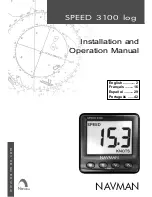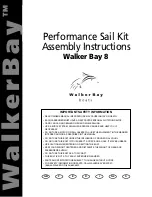
KTR-STOP
®
XS-xx-F B-xx
Operating/Assembly instructions
KTR-N
Sheet:
Edition:
44536 EN
18 of 25
3
Please observe protection
note ISO 16016.
Drawn:
2020-03-26 Shg/Wie
Replacing:
KTR-N dated 2017-12-19
Verified:
2020-03-26 Shg
Replaced by:
STOP
In order to avoid any personal injuries, protect the brake by means of the assembly lock.
•
Remove the screw plug (component 1.9) or the sensor (component 9) from the setting nut (component 1.7).
•
Put the opening pressure (see table 2) onto the hydraulic system.
•
Hand-tighten the screw with the disk (assembly lock, see illustration 16) into the setting nut (component 1.7).
•
Release the pressure fully from the hydraulic system.
!
Please make sure that the entire brake/hydraulic system is depressurized.
STOP
Parts released or falling down may cause injury to persons or damage on the machine.
Secure the components before disassembly.
•
Remove the screw plug located at the highest point (component 1.13) from the venting hole (see
illustrations 12 to 15).
•
Drain the hydraulic oil completely from the brake.
•
Dispose of the hydraulic oil as per chapter 4.13.
•
Disconnect the drain and pressure oil line from the brake.
•
Screw the screw plugs (component 1.13) into all pressure ports or venting holes (see illustrations 12 to 15).
•
Remove the 2-off screws serving for fixing the brake to the connection plate.
•
Take out the brake.
A basic requirement to ensure the operational readiness of the brake is a stock of the most important spare parts
on site.
Contact addresses of the KTR partners for spare parts and orders can be obtained from the KTR homepage at
www.ktr.com.
KTR does not assume any liability or warranty for the use of spare parts and accessories
which are not provided by KTR and for the damages which may incur as a result.
4
Assembly
4.11 Disassembly of the brake
4.12 Spares inventory, customer service addresses








































